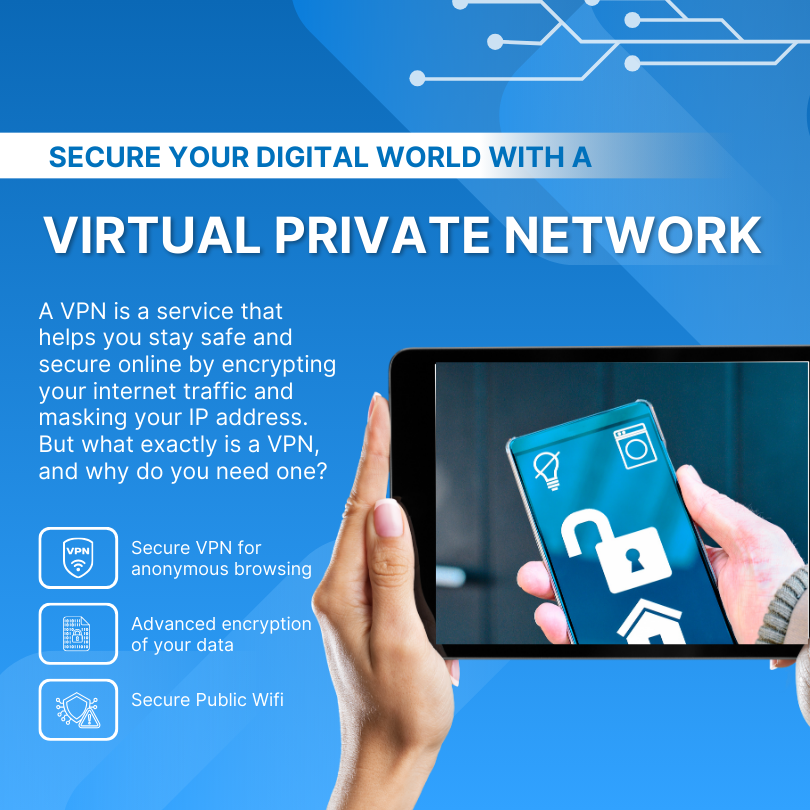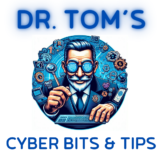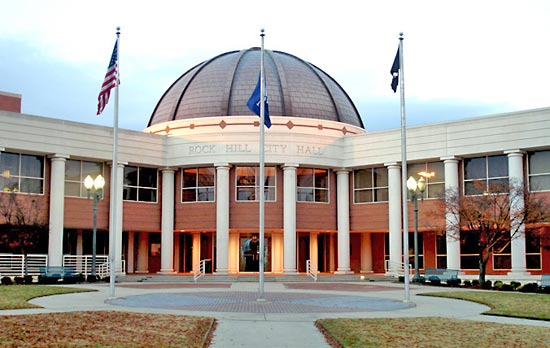In our digital age, the importance of online privacy and security has never been more significant. One of the most effective tools to achieve this is a Virtual Private Network (VPN). A VPN is a service that helps you stay safe and secure online by encrypting your internet traffic and masking your IP address. But what exactly is a VPN, and why do you need one?
What is a VPN?
A VPN stands for Virtual Private Network. It creates a secure, encrypted connection between your device and a remote server operated by the VPN service. This connection, often referred to as a “tunnel,” ensures that all your internet traffic is routed through this tunnel, protecting it from prying eyes. Once your data reaches the VPN server, it is sent to its final destination on the internet, making it appear as if it originated from the VPN server rather than your actual location.
Why Do You Need a VPN?
1. Enhanced Privacy and Anonymity Your Internet Service Provider (ISP) can see all your online activities. They can track the websites you visit, the content you download, and even sell this data to third parties. A VPN hides your online activity from your ISP, ensuring greater privacy. Additionally, advertisers often track your IP address to target you with ads. A VPN masks your IP address, making it difficult for advertisers to track you.
2. Secure Public Wi-Fi Use Public Wi-Fi networks, such as those in cafes, airports, and hotels, are often unsecured, making them prime targets for hackers. A VPN encrypts your data, protecting it from cybercriminals who might try to intercept your information on these networks.
3. Bypass Geo-Restrictions and Censorship Some websites and online services restrict access based on your geographic location. A VPN allows you to connect to servers in different countries, effectively bypassing these geo-restrictions. This is particularly useful for accessing content like streaming services or websites that are blocked in certain regions.
4. Safe Remote Working With more people working remotely, securing sensitive company data is crucial. VPNs allow remote workers to securely connect to their company’s network, ensuring that all data transmitted between the employee and the company is encrypted and safe from interception.
5. Prevent ISP Throttling ISPs sometimes throttle your internet speed if they detect activities that consume a lot of bandwidth, such as streaming or gaming. By hiding your online activities, a VPN can help prevent your ISP from throttling your connection.
Choosing the Right VPN
When selecting a VPN, consider the following factors:
1. Security and Privacy Policies Ensure that the VPN uses strong encryption protocols and has a strict no-logs policy, meaning they don’t keep records of your online activities.
2. Server Locations A good VPN service offers a wide range of servers in different countries. This not only helps in bypassing geo-restrictions but also ensures better speed and reliability.
3. Speed and Performance Using a VPN can sometimes slow down your internet connection. Look for a VPN known for high-speed connections to ensure minimal impact on your browsing experience.
4. Ease of Use Choose a VPN with an easy-to-use interface and compatibility with multiple devices and operating systems.
5. Customer Support Reliable customer support is essential in case you encounter any issues with the VPN service. Look for providers that offer 24/7 support.
6. Cost While there are free VPNs available, they often come with limitations and privacy concerns. Investing in a reputable, paid VPN service is recommended for better security and performance.
Conclusion
In conclusion, a VPN is an essential tool for anyone looking to enhance their online privacy and security. Whether you want to protect your data on public Wi-Fi, bypass geo-restrictions, or keep your online activities private, a VPN can provide the necessary protection. By choosing the right VPN service, you can ensure a safer and more private internet experience.
Dr. Tom’s Recommendation
Dr. Tom recommends Proton VPN, which offers a free version that only requires an email to sign up—no credit card required. You can also try the paid version for 30 days.
Free VPN to Protect Your Privacy
- Create a free account and download Proton VPN
- 1 device
- No ads
- No logs
- Unlimited & free forever
Use Proton VPN Free on All Your Devices Regardless of whether you use a PC, tablet, phone, or anything in between, Proton VPN has you covered with free VPN apps for all the major operating systems.
Download Proton VPN for Your Device
Feeling lost in the digital world? Dr. Tom is here to help!
Join Dr. Tom every week in his column, Dr. Tom’s Cyber Bits and Tips, for byte-sized advice on all things cyber and tech. Whether you’re concerned about online safety, curious about the latest cybercrime trends, or simply want to navigate the ever-evolving digital landscape, Dr. Tom has you covered.
From practical cybersecurity tips to insightful breakdowns of current threats, Dr. Tom’s column empowers you to stay informed and protect yourself online. So, dive in and get savvy with the web – with Dr. Tom as your guide!
About Dr. Tom
Thomas Hyslip currently serves as an Assistant Professor of Instruction in the Department of Criminology, University of South Florida teaching exclusively in the online Master of Science in Cybercrime program. The program is a unique blend of criminology, digital forensics, cybercrime investigations, and incident response course work.
Prior to USF, Dr. Hyslip worked as a Special Agent with the Defense Criminal Investigative Service (DCIS) and United States Secret Service for 23 years. While assigned to the DCIS Southeast Field Office, Dr. Hyslip led an undercover operation dedicated to targeting and dismantling the most egregious cyber-criminal enterprises. Dr. Hyslip worked with the National Security Agency, and the United States Cyber Command to identify and infiltrate cyber-criminal organizations targeting the DoD.
In 2012, Dr. Hyslip was promoted to lead the newly created Department of Defense, Defense Criminal Investigative Service (DCIS), Cyber Resident Agency. He led daily procedural and operational activities of special agents in eight locations across the eastern United States responding to computer intrusions within the DoD and the Defense Industrial Base. His office also provided computer forensic support to all DCIS offices and investigations within the Eastern United States, Europe, Africa and Southwest Asia. During this time, Dr. Hyslip worked proactively to target international Cyber-Crime groups and worked undercover to penetrate underground cyber-crime organizations which resulted in the dismantlement of the WebStresser DDoS platform in 2018; the ExoStresser DDoS platform in 2019; and the PowerStresser DDoS platform in 2020.
Dr. Hyslip is also a retired U.S. Army Colonel. His last assignment was as a Historian with the U.S. Army Center of Military History. He was previously assigned to the Office of the Surgeon General as an Environmental Engineer, and as an Assistant Professor of Preventive Medicine at the F. Edward Hébert School of Medicine, Uniformed Services University of the Health Sciences. COL Hyslip has a mix of active duty and reserve assignments spanning over 27 years including assignments with the US African Command, Office of Inspector General, the Department of Defense, Office of Inspector General, and the US Army Reserve Information Operations Command. In 2005, COL Hyslip deployed to Iraq with the 306th Military Police Battalion and earned a Bronze Star, Purple Heart, and Combat Action Badge.
Dr. Hyslip earned his Doctor of Science degree in Information Assurance from Capitol College, Master of Science degree in Technology Systems from East Carolina University, and his Bachelor of Science degree in Mechanical Engineering










